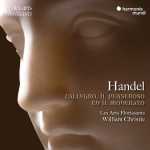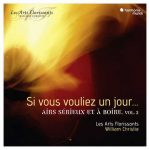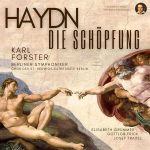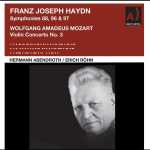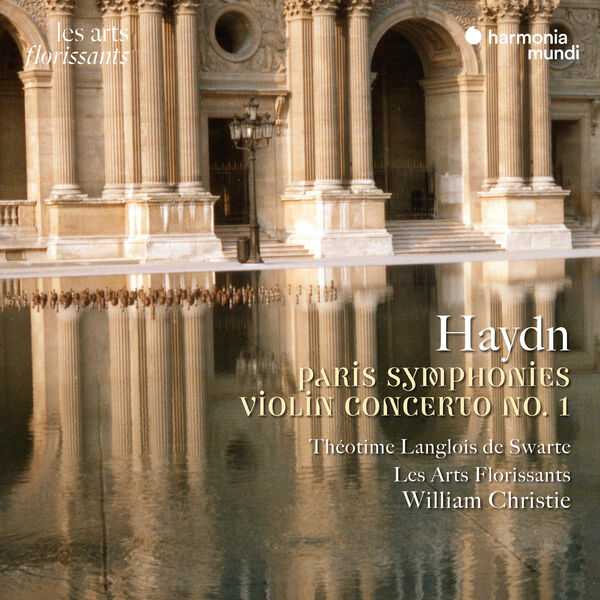

Composer: Franz Joseph Haydn
Performer: Théotime Langlois de Swarte, Les Arts Florissants
Conductor: William Christie
Number of Discs: 2
Format: FLAC (tracks)
Label: Harmonia Mundi
Catalogue: HAF890537172
Release: 2023
Size: 2.39 GB
Recovery: +3%
Scan: yes
CD 01
Symphony No. 84 in E-Flat Major, Hob. I:84
01. I. Largo – Allegro
02. II. Andante
03. III. Menuet. Allegretto – Trio
04. IV. Finale. Vivace
Symphony No. 85 in B-Flat Major, Hob. I:85 “La reine”
05. I. Adagio – Vivace
06. II. Romance. Allegretto
07. III. Menuet. Allegretto – Trio
08. IV. Finale. Presto
CD 02
Violin Concerto No. 1 in C Major, Hob. VIIa:1
01. I. Allegro moderato
02. II. Adagio
03. III. Finale. Presto
Symphony No. 86 in D Major, Hob. I:86
04. I. Adagio – Allegro spiritoso
05. II. Capriccio. Largo
06. III. Menuet. Allegretto – Trio
07. IV. Finale. Allegro con spirito
Symphony No. 87 in A Major, Hob. I:87
08. I. Vivace
09. II. Adagio
10. III. Menuet – Trio
11. IV. Finale. Vivace
Commissioned by the Comte d’Ogny for the Le Concert de la Loge Olympique, the ‘Paris’ Symphonies form a key milestone in Haydn’s output.
William Christie and Les Arts Florissants have long loved these highly original works and offer us an exhilaratingly elegant and poetic reading of four of them.
The coupling is the all-too-rarely played Violin Concerto No.1, here directed by the soloist Théotime Langlois de Swarte.
Among the major conductors of the historical performance movement, William Christie has been slower than others to move beyond the Baroque. He has recorded some Haydn with his orchestra Les Arts Florissants, including a notably successful take on the oratorio Die Schöpfung. Here, he offers readings of four of Haydn’s six “Paris” symphonies, missing only the Bear and the Hen. They were premiered by the Orchestra of the Olympic Lodge under the direction of the newly rediscovered Black conductor and composer Joseph Bologne, Chevalier de Saint-Georges, with an orchestra including 40 violins and ten double basses. It is interesting how orchestra size is rarely considered when “authentic” performances are being organized, and Christie’s group is considerably smaller than that. However, listeners will experience the durable virtues of Les Arts Florissants, including energetic Allegro movements and fine instrumental work from the difficult period brasses and winds. Perhaps Christie’s minuets sound too much like the French Baroque dance; they are stately rather than humorous. On the plus side is the performance of the rather rarely heard Violin Concerto No. 1, Hob. 7a/1, by the impressively named Théotime Langlois de Swarte, who also conducts the piece (and is a bit livelier than Christie); sample his highly tuneful Adagio. Harmonia Mundi’s noisy Cité de la Musique sound, in music written for a theater of well-upholstered luxury boxes, is a disincentive here.
